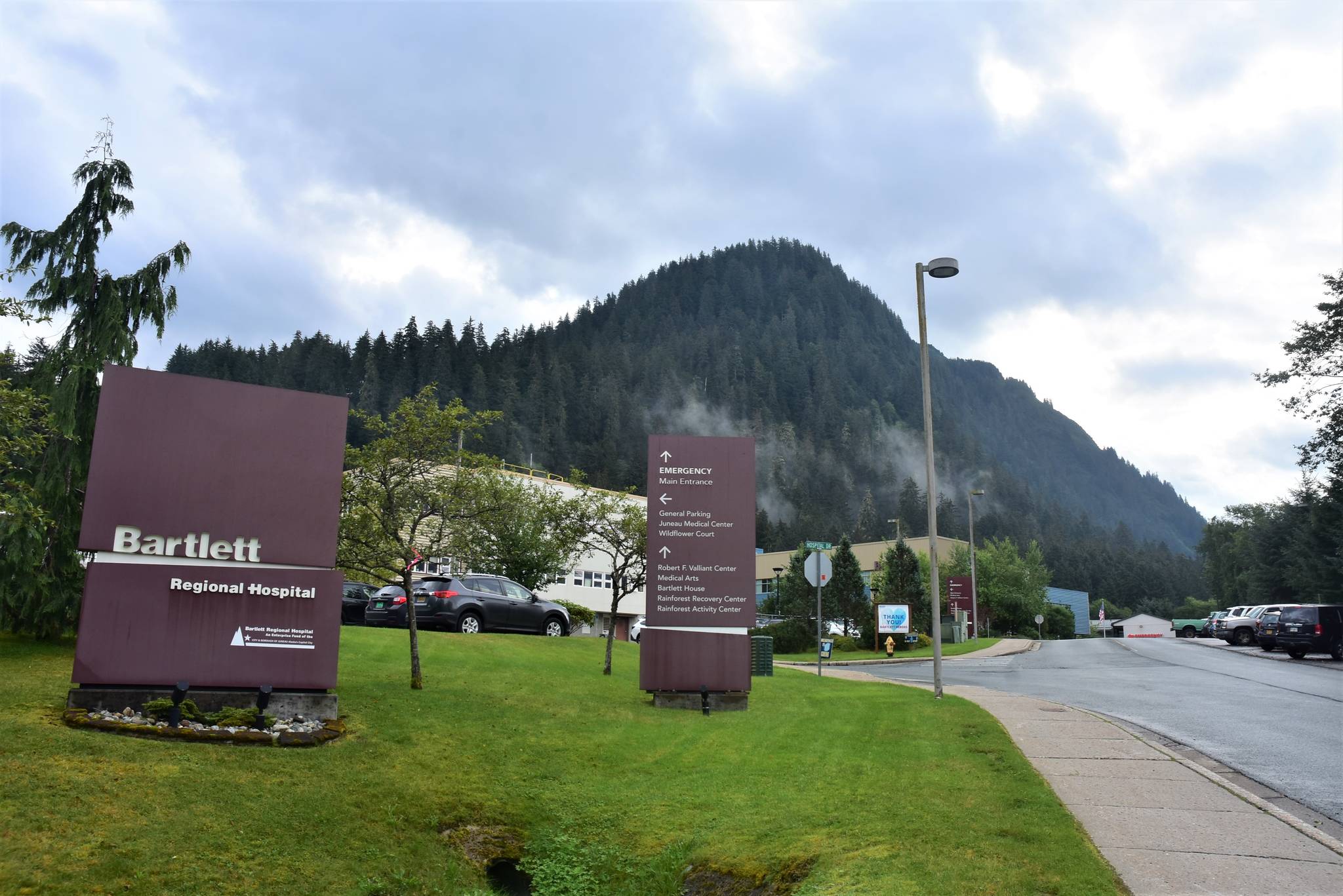Early December is the soonest the city can expect to receive an advanced testing machine enabling coronavirus testing to be completed locally and shortening the wait time for results down to hours rather than days, said Robert Barr, planning section chief for the city’s Emergency Operations Center.
Speaking at the Greater Juneau Chamber of Commerce Weekly Luncheon, Barr told virtual attendees how the city was currently on waitlists for four separate machines, Barr said, but the high demand for testing machines worldwide means early December was a highly optimistic date.
“I wouldn’t bet on it,” Barr said at the luncheon.
In early June, the City and Borough of Juneau Assembly voted to use $700,000 of federal CARES Act money to purchase a testing machine to be housed and operated at Bartlett Regional Hospital.
Currently, the city relies on state or private laboratories to process the test samples taken from people in Juneau. Because samples have to be flown to either the Lower 48 or elsewhere in the state, the current turn-around time for test results is 3-5 days, Barr said. The large number of variables involved in sending the tests elsewhere — demand, testing supplies, weather and staffing — can make wait times for results even longer, he said.
[Juneau a testing hub? Assembly to consider buying testing machine]
The testing machines the city’s in line for would be able to process test samples in as little as four hours, Barr said, but the likely turnaround time for results could be between six and 24 hours given the realities of the work involved.
The biggest problem, Barr said, was the cost of operating the machine in the long run.
“We really don’t know how we’re going to pay for this after Dec. 31,” Barr said.
CARES Act money pays for all testing in Alaska done by the state or local governments, and under the current arrangement, the state is using its share of the federal aid money. But if the city were to purchase its own machine and start processing tests locally that could change, Barr said.
The machine and the associated costs of installing it, including light renovation work needed to install it at the hospital, are currently being paid for with CARES Act money. But the deadline to use that money is Dec. 30. There is legislation introduced by Sens. Maggie Hassan, D-New Hampshire, and Chuck Grassley, R-Iowa, to extend the spending deadline another year to 2021. But even with bipartisan support for such legislation, it is difficult to predict what Congress would do and when, Barr said.
Sen. Dan Sullivan, R-Alaska, introduced the Coronavirus Relief Fund Flexibility Act, which would allow municipalities to backfill lost revenue caused by the COVID-19 pandemic, which is currently not allowed. Municipal leaders have repeatedly stated their need to use CARES Act funds in that way, but Sullivan’s bill does not extend the spending deadline beyond the end of December.
The machine’s purchase was strongly supported by members of the Assembly, to whom the chamber had written a letter in support of the plan. While it is true there was no plan as of yet to pay for it in the long term, Barr said there was little indication the city would be decreasing its testing needs anytime soon.
The city’s former finance director Bob Bartholomew is helping to crunch the numbers to come up with a daily cost for operating the machine, Barr said, but said they were still waiting on data to calculate a cost. The city has orders in for four machines, but because of the high demand for the machines, the city can pull out of those contracts at any time with no penalty, Barr said.
Though it is too soon to tell what an actual arrangement might look like, Barr said the city has been in contact with state health officials throughout the process.
Looking ahead, Barr said the machine could potentially prove useful when the Alaska State Legislature begins its new session, or when tourists begin returning in large numbers.
Cases still on the rise
Alaska reported 86 new cases Thursday, all but two of which were state residents. Most of the new cases were in Anchorage, Fairbanks and the Matanuska-Susitna Borough. Statewide there are currently 39 COVID-19-related hospitalizations and a total of 37 deaths.
CBJ, which posts its own data more quickly than the state does, reported two new cases with a total of 18 active cases. Juneau is currently at Level 2 Moderate under the city’s method for assessing community risk related to coronavirus. There are currently no COVID-19 patients at BRH, according to city data.
The city recently began a new series of online presentations updating the public on the status of COVID-19 in the community. The meetings, which are held live through Zoom or Facebook, are being moved to Tuesdays at 5 p.m. Barr said, to encourage public participation.
Members of the public can submit questions via email at covidquestions@juneau.org.
• Contact reporter Peter Segall at psegall@juneauempire.com. Follow him on Twitter at @SegallJnoEmpire.

